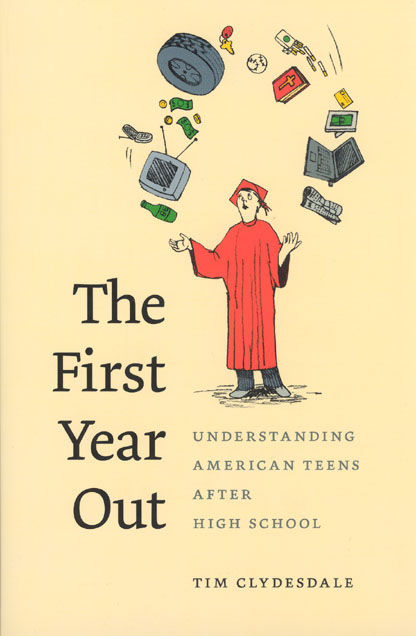What do they do after High School?

The Chronicle of Higher Education is running an article by James M. Lang on the current state of undergraduate education titled “The Myth of First-Year Enlightenment.” In the article Lang cites Tim Clydesdale’s recent book, The First Year Out: Understanding American Teens after High School to explore modern students’ reactions to their first introduction to academe:
You’ll recognize this story: Intelligent but naïve high-school graduate heads off to college… [and] discovers how limited her worldview has been. Her consciousness is awakened. She emerges from her first year of college a changed human being, with more thoughtful views on religion, politics, and her own identity.
Our institutions… hawk the tale to prospective students and their parents on Web sites, in brochures, and on campus tours: You will come back from your first year a changed man or woman. You will be on the path to your new and more enlightened life. You will have had the best four years of your life.
Not so, according to Tim Clydesdale, an associate professor of sociology at the College of New Jersey, and author of The First Year Out: Understanding American Teens After High School.… “Most of the mainstream American teens I spoke with neither liberated themselves intellectually nor broadened themselves socially during their first year out,” he writes. “What teens actually focus on during the first year out is this: daily life management.”
In other words, freshmen spend most of their time and intellectual energy figuring out how to handle life without parental restraints and support: how to deal with money; negotiate newfound freedoms with sex, drugs, and alcohol; and determine how much time to devote to studying, working, and playing.
But what freshmen don’t do during their first year of college comes as more of a (perhaps depressing) surprise: “Most American teens keep core identities in an ‘identity lockbox’ during their first year out and actively resist efforts to examine their self-understandings through classes or to engage their humanity through institutional efforts such as public lectures, the arts, or social activism.”
Read the rest of the article on the Chronicle website.